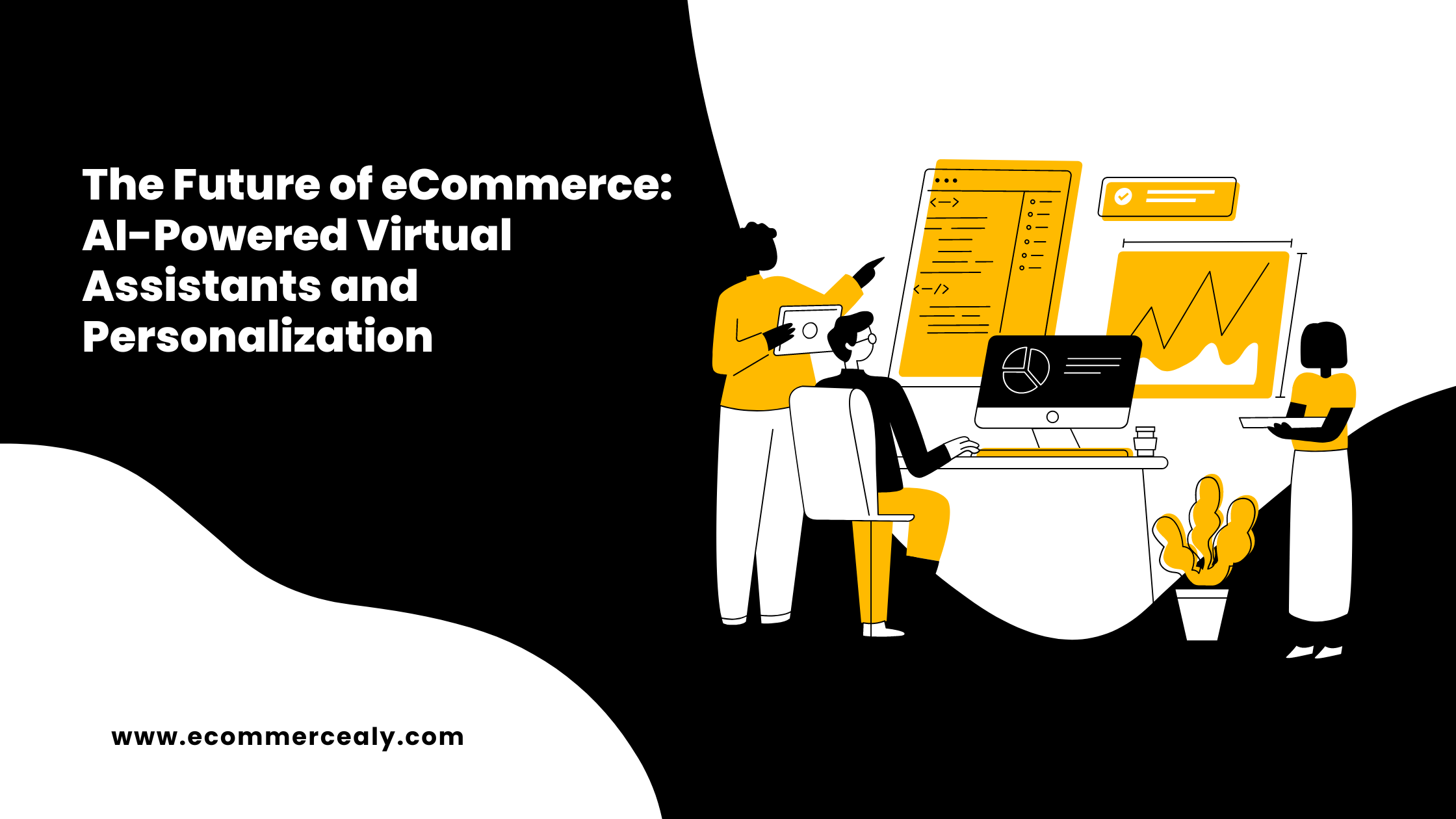The rapid evolution of the eCommerce industry has led to new and exciting ways to improve the customer experience. Among these innovations, AI-powered eCommerce virtual assistants are playing an increasingly critical role in delivering seamless, personalised services. As eCommerce continues to grow, businesses are looking for ways to streamline operations, provide top-notch customer service, and drive sales, and AI-powered virtual assistants are stepping in to meet these needs.
With this article, We’re sharing how AI-powered virtual assistants are revolutionising eCommerce through personalised experiences, smarter automation, and enhanced efficiency. We’ll also explore key tools that eCommerce virtual assistants use for customer support, marketing, and analysis, providing a comprehensive look at how AI is shaping the future of eCommerce.
What Are AI-Powered eCommerce Virtual Assistants?
At its core, an eCommerce virtual assistant (VA) is a remote professional who provides support services to businesses. In the eCommerce world, virtual assistants take on various roles, from handling customer queries and managing social media to processing orders and analysing data.
Empowering these virtual assistants with the right AI tools & technologies like machine learning (ML) and natural language processing (NLP), The upgraded AI-powered virtual assistants become smarter, faster, and more productive. They automate repetitive tasks, make data-driven decisions, and provide personalised experiences at scale, helping eCommerce businesses stay competitive in a market.
At eCommerceAlly, Our virtual assistants are trained to use AI tools making them faster and more efficient giving them an edge over other VAs.
The Rise of Personalization in eCommerce
Personalization is no longer just a trend in eCommerce; it’s a necessity. Customers expect personalised shopping experiences tailored to their preferences, behaviours, and needs. AI-powered virtual assistants at EcommerceAlly make this possible by leveraging the data available from tools to understand customer preferences and deliver highly relevant recommendations and services.
How AI Virtual Assistants Personalise Customer Experiences
Tailored Marketing Campaigns: Using AI tools, virtual assistants can segment audiences based on detailed criteria, allowing businesses to run highly targeted marketing campaigns. For instance, they can send personalised email offers, promotions, and discounts to specific customer segments, increasing the likelihood of conversion.
- Customer Support Customization: AI-powered chatbots and virtual assistants can adapt their tone, language, and responses based on customer data, providing a more personalised and human-like interaction compared to the rebuttals provided in a conventional way. This improves customer engagement and reduces churn rates.
- Dynamic Content : virtual assistants with right AI tools can optimise website content, such as homepage banners or product descriptions, based on the preferences of each visitor. This ensures that customers see the most relevant offers and products as soon as they land on the site. With the right prompt usage, They can also generate the content copies which are relevant to the target audience.
The Role of AI Tools in Boosting eCommerce Virtual Assistant Productivity
AI-powered virtual assistants are becoming essential assets for eCommerce businesses. They use a variety of tools to enhance their productivity, streamline operations, and improve overall performance. Here are some key tools that AI-powered eCommerce virtual assistants rely on:
- AI Tools for Customer Support
– Zendesk: This AI-powered customer service platform allows virtual assistants to manage support tickets, track customer interactions, and provide efficient solutions. Its AI capabilities can automatically categorise and prioritise tickets, route inquiries to the right departments, and provide personalised support to customers.
– Tidio: Tidio is a popular AI-powered live chat and chatbot platform that virtual assistants can use to engage with customers 24/7. The AI chatbots can handle common queries, recommend products, and even assist in checkout processes, freeing up time for human VAs to focus on more complex tasks.
- AI Tools for Marketing Automation
– HubSpot: HubSpot’s AI-driven marketing automation tools allow virtual assistants to manage email marketing campaigns, lead generation, and social media scheduling. The AI helps analyse customer data, optimise content delivery, and ensure that marketing campaigns are personalised and effective.
– Marketo: Marketo is another powerful marketing automation platform that uses AI to help virtual assistants create highly targeted and personalised campaigns. It tracks customer behaviour across different channels, offering actionable insights that VAs can use to tailor campaigns and drive engagement.
- AI Tools for Data Analysis and Insights
– Kissmetrics : This AI-powered tool allows virtual assistants to track and analyse customer behaviour on eCommerce websites. By understanding how visitors navigate through the site, virtual assistants can identify bottlenecks, make recommendations for improving the user experience, and increase conversions.
The Benefits of AI-Powered Virtual Assistants in eCommerce
AI-powered virtual assistants bring numerous benefits to eCommerce businesses. Below are some of the key advantages they offer:
- Increased Efficiency and Productivity
- Enhanced Customer Experience
- Cost Savings
- Scalability
- Data-Driven Decision Making
Conclusion
The future of eCommerce is bright, with AI-powered virtual assistants leading the way in delivering personalised, efficient, and scalable solutions. While relying only on AI tools for accomplishing tasks is dangerous to any business. The AI empowered VAs can be highly efficient and are becoming invaluable assets for driving growth and improving customer satisfaction.
By leveraging AI tools like Zendesk, HubSpot, and Google Analytics, eCommerce virtual assistants can streamline operations, deliver personalised experiences, and make data-driven decisions that propel businesses forward. As the industry continues to evolve, the integration of AI technology will only deepen, shaping the future of eCommerce for years to come.
By staying ahead of these trends and adopting AI-powered virtual assistants, eCommerce businesses can remain competitive, deliver superior customer experiences, and achieve long-term success.
Contact us today for more information and exciting offers!








